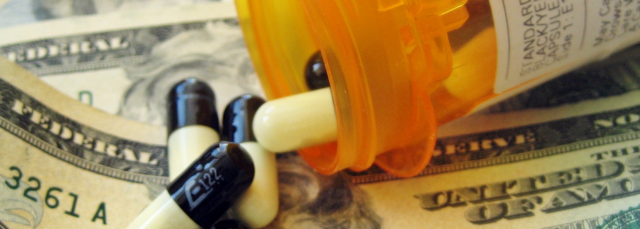
To sell their drugs, pharmaceutical companies hire former cheerleaders and ex- models to wine and dine doctors, exaggerate the drug’s …
When drug companies give gifts to doctors, the doctors prescribe more — and more expensive — drugs. The more lavish the gifts, the greater the effect.
Researchers used data from the Center for Medicaid and Medicare Services on the prescriptions written by doctors in Washington, and information from the D.C. Department of Health on gifts from pharmaceutical and medical device companies given to providers in 2013.
The study, in PLOS One, found that 39.1 percent of prescribers received gifts ranging in value from $7 to $200,000, while the rest received none. Health care providers given gifts wrote an average of 892 prescriptions compared with 389 for those who accepted none. The average cost of a prescription was $135 for gift recipients and $85 for the others. Gift recipients chose the brand-name drug a third of the time, compared with a quarter of the time for non- recipients.
Any gift was associated with higher cost prescriptions, but the larger gifts had an even greater effect. Those who received gifts worth more than $500 during the year averaged $189 per prescription.
The senior author, Dr. Adriane J. Fugh-Berman, director of PharmedOut, a project on drug prescribing based at Georgetown University Medical Center, had some straightforward advice for patients. “You shouldn’t see doctors who see drug reps,” she said. “Less than a minute of talking to a drug rep will increase prescribing of brand-name drugs.”
 Written by Nicholas Bakalar and published by the New York Times ~ October 25, 2017.
Written by Nicholas Bakalar and published by the New York Times ~ October 25, 2017.
 FAIR USE NOTICE: This site contains copyrighted material the use of which has not always been specifically authorized by the copyright owner. We are making such material available in our efforts to advance understanding of environmental, political, human rights, economic, democracy, scientific, and social justice issues, etc. We believe this constitutes a ‘fair use’ of any such copyrighted material as provided for in section 107 of the US Copyright Law. In accordance with Title 17 U. S. C. Section 107, the material on this site is distributed without profit to those who have expressed a prior interest in receiving the included information for research and educational purposes. For more information go to: http://www.law.cornell.edu/uscode/17/107.shtml“
FAIR USE NOTICE: This site contains copyrighted material the use of which has not always been specifically authorized by the copyright owner. We are making such material available in our efforts to advance understanding of environmental, political, human rights, economic, democracy, scientific, and social justice issues, etc. We believe this constitutes a ‘fair use’ of any such copyrighted material as provided for in section 107 of the US Copyright Law. In accordance with Title 17 U. S. C. Section 107, the material on this site is distributed without profit to those who have expressed a prior interest in receiving the included information for research and educational purposes. For more information go to: http://www.law.cornell.edu/uscode/17/107.shtml“
